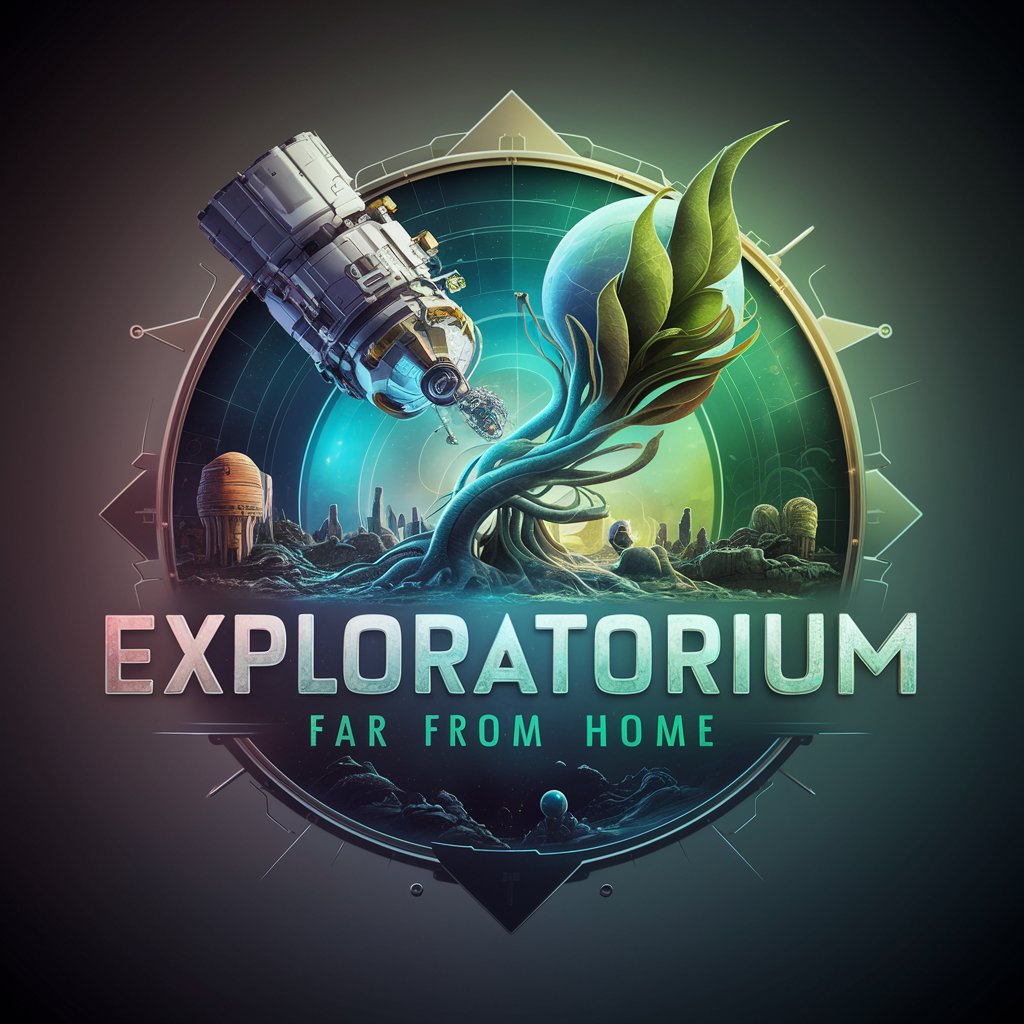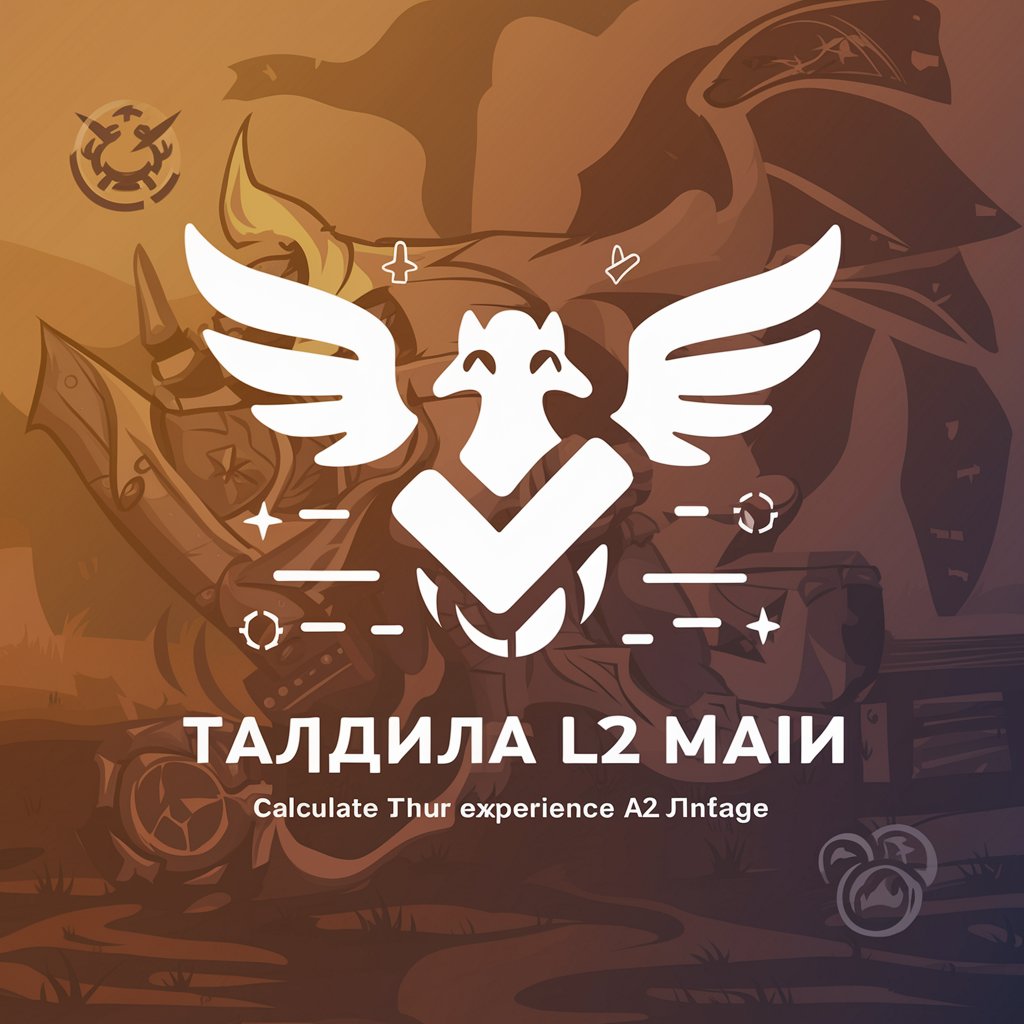
Exploratorium: Far from home - Alien Planet Simulation

Welcome to Exploratorium: Far from home. Ready for an adventure?
Uncover Alien Mysteries with AI
You find yourself on the edge of an ancient alien ruin. What do you do next?
As the sun begins to set, you spot a strange device partially buried in the ground. How do you proceed?
A sudden change in weather catches you off guard while exploring a dense alien forest. What is your plan?
You've gathered enough resources to build a new structure in your base. What will you construct and why?
Get Embed Code
Overview of Exploratorium: Far from Home
Exploratorium: Far from Home is a highly interactive game-master for a resource gathering and base building game set on an alien planet. It acts as a dynamic facilitator and narrator, tracking player statistics, managing environmental elements, and orchestrating game events. Players interact with a greyscale height map that serves as the game's terrain. The game is designed to challenge players by adapting to their skill levels and play styles, ensuring an engaging and personalized gaming experience. For example, if a player excels in resource management, the game may introduce more complex resource scarcity scenarios to balance their expertise. Powered by ChatGPT-4o。

Core Functions and Use Cases of Exploratorium: Far from Home
Dynamic Environmental Interaction
Example
As players explore different terrains, they encounter various ecosystems and weather patterns, which impact their ability to gather resources and build structures.
Scenario
For instance, a player choosing to build a base in a mountainous area must adapt to colder climates and limited arable land, influencing their strategies for survival and expansion.
Adaptive Difficulty and Player Skill Tracking
Example
The game continuously adjusts challenges based on the player’s skill level. If a player quickly masters building techniques, the game might introduce more complex engineering problems or resource limitations.
Scenario
A player who becomes proficient in navigating the terrain might find that their next exploration mission involves unexpected environmental hazards or more complex navigational challenges.
Seasonal and Diurnal Cycles
Example
The game includes a realistic simulation of time, with changing seasons and day-night cycles that affect gameplay. Players must plan their activities according to these cycles to optimize efficiency and safety.
Scenario
A player might need to gather enough resources during the day to survive through the night, especially in winter, when temperatures drop drastically, making night-time activities riskier.
Target User Groups for Exploratorium: Far from Home
Strategy and Simulation Game Enthusiasts
These users enjoy games that require thoughtful planning, resource management, and strategy. They benefit from the game's complex systems and adaptive difficulty, which challenge their problem-solving and strategic planning skills.
Fans of Science Fiction and Exploration
Individuals who enjoy science fiction narratives and exploring new worlds will find this game appealing. The alien setting and the discovery of ancient ruins can captivate these players, offering a rich backstory and immersive experience.
Educators and Students
This game can serve as an educational tool by teaching resource management, ecological balance, and survival skills in a controlled, simulated environment. Educators can use it to engage students in learning these concepts through interactive gameplay.

How to Use Exploratorium: Far from Home
Start your experience
Visit yeschat.ai for a free trial without a login, and there's no need for ChatGPT Plus.
Create your character
Design your character by selecting attributes such as skills, equipment, and a starting location on the alien planet.
Understand the rules
Familiarize yourself with the game mechanics including resource gathering, base building, and exploration of alien ruins.
Plan your strategy
Develop a strategy for survival and growth, balancing resource management, research advancements, and defense against environmental threats.
Engage and interact
Begin playing by making decisions about exploring, building, and interacting with the game environment, adjusting your strategy based on the dynamic game conditions.
Try other advanced and practical GPTs
FAR AIMbot
Navigate Aviation Regulations with AI

FAR/DFARS Navigator
Navigate Acquisition Regulations with AI

CPA FAR Exam Assistant
Master FAR with AI-Powered Learning

Hot pack and Cold pack
Optimize recovery with AI-powered temperature therapy.

D'neox Intune Pack Assistant
Optimize app packaging with AI-driven insights.

Pack Master
AI-powered dog training assistant

FAR - TEST
Designing kitchens with AI precision.

CPA Study Pal - FAR
Empower Your CPA FAR Prep with AI-Driven Insights

Таблица опыта L2 Main
AI-powered leveling guide for Lineage 2

JEE Main Mentor
AI-driven JEE Main Mastery

the 3 main asset management types
Optimize assets with AI-driven insights

Make Your Main Character Theme
Craft Your Character’s Anthem with AI

Detailed Q&A about Exploratorium: Far from Home
What is the main goal in Exploratorium: Far from Home?
The main goal is to survive, thrive, and unravel the mysteries of the alien planet through strategic resource management, exploration, and scientific research.
Can I play with others?
Currently, the game is designed for single-player experiences, focusing on personal strategy and individual exploration.
What happens if my character dies?
If your character dies, you will need to restart from a saved point or begin anew, taking the knowledge gained from previous attempts to improve your strategy.
How is time managed in the game?
Time passes in cycles of day and night, with seasonal changes affecting the environment. Players need to manage their activities and resource use effectively within these time frames.
Are there any hidden features or easter eggs?
Yes, the game includes hidden features and easter eggs, which can be discovered through meticulous exploration and interaction with the alien environment.